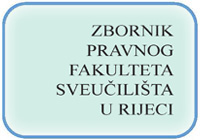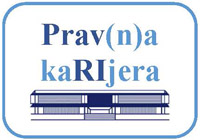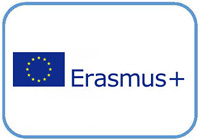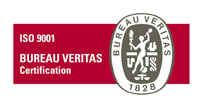Structure of the Study
The Study is organized as a three-year programme in the duration of six semesters. During the Study, students attend 27 compulsory courses, of which five in the first semester, five in the second semester, five in the third semester, five in the fourth semester, five in the fifth semester and two in the sixth semester. These courses provide the students with basic knowledge, skills and competences related to the organization and functioning of public administration, local and regional governments and public services, economics and financing of the system of public administration, public administration procedures, adoption of individual and general decisions in public administration, rights, obligations and responsibilities arising from labour relations in public administration and which relate to the application of the administrative law of the European Union on legal situations created in the domestic legal system. In the second and fourth semester students write one essay, respectively, whereby they demonstrate their competence of a deep analysis of a given topic, and/or they independently solve a practical assignment. In the fifth semester the student enrols in two elective courses whereby he is focused on the administrative area for which he shows the greatest interest. The student chooses the elective courses based on his own desire in accordance with the limitations regarding the number of students per study group. As one elective course, and with the approval of the Vice-Dean for Professional Study, the student can choose to attend one of the courses from the list of elective courses at the Integrated Undergraduate and Graduate Study of Law at the Faculty of Law in Rijeka or another degree programme at the University of Rijeka or at another university, if the course carries 3 or more ECTS credits, and if it is determined that it will help the student to more specifically focus the knowledge, skills and competences required for work in public administration.
The time-table for part-time students is adapted to the employed students, and each course is implemented through concentrated lessons in the afternoons and Saturday mornings. Lectures systematically cover legal and administrative theories and solutions contained in the legislation and judicial and administrative practice, and particular emphasis is placed on the methods of administrative organization, communication, and business management. Exercises form a didactic unit with the associated course; they are a requirement for taking the exam and are a part of the ECTS structure of the associated course. Exercises consist of analyses of practical tasks in order to directly familiarize the students with the activity of public law entities. The seminar is a stand-alone course that is not a requirement for taking the exam in the same-name course. Seminar classes imply a deeper familiarization of the students with the subject matter of individual courses and the methodology of the professional paper. During the exercises and seminars, particular focus is placed on the analysis of practical cases, discussions, and individual and teamwork. The Practicum is conducted in the form of mentorship-consultative work with the student, and it includes practical solving of a given problem, self-preparation and final presentation. The student is required to regularly attend classes, actively participate and master the study material. Homework, presentations of papers, use of the Internet and other media, etc. are provided as possible forms of participation in class. After completing the course, the students have to pass a written, written and oral or oral exam.
In the sixth semester, the student performs his professional practice in a public administration body or another public body i.e. in the unit of local and regional self-government for a period of ten working days. The student, with a special approval of the Vice-Dean for Professional Study, may carry out the professional practice also in a public institution, utility or another company, lawyer’s and notary’s office or another organization which carries out administrative tasks. The students must pass all compulsory and selected elective courses from the study programme. In the sixth semester, students also choose the topic and the mentor for their final thesis, which can be from the field of the compulsory courses and elective courses, which the student attended during the Study. He completes the Study with the defence of the final thesis. Thereby the student gains a total of 180 ECTS points in the Study.
The pace of the Study and student obligations are prescribed by the University of Rijeka Regulations on Studies and Regulations on Studies of the Faculty of Law in Rijeka. Students will achieve the necessary ECTS credits by passing the exams in compulsory and elective courses, by successfully completing seminar obligations and professional practice, as well as by submittingand defending the final paper.
















